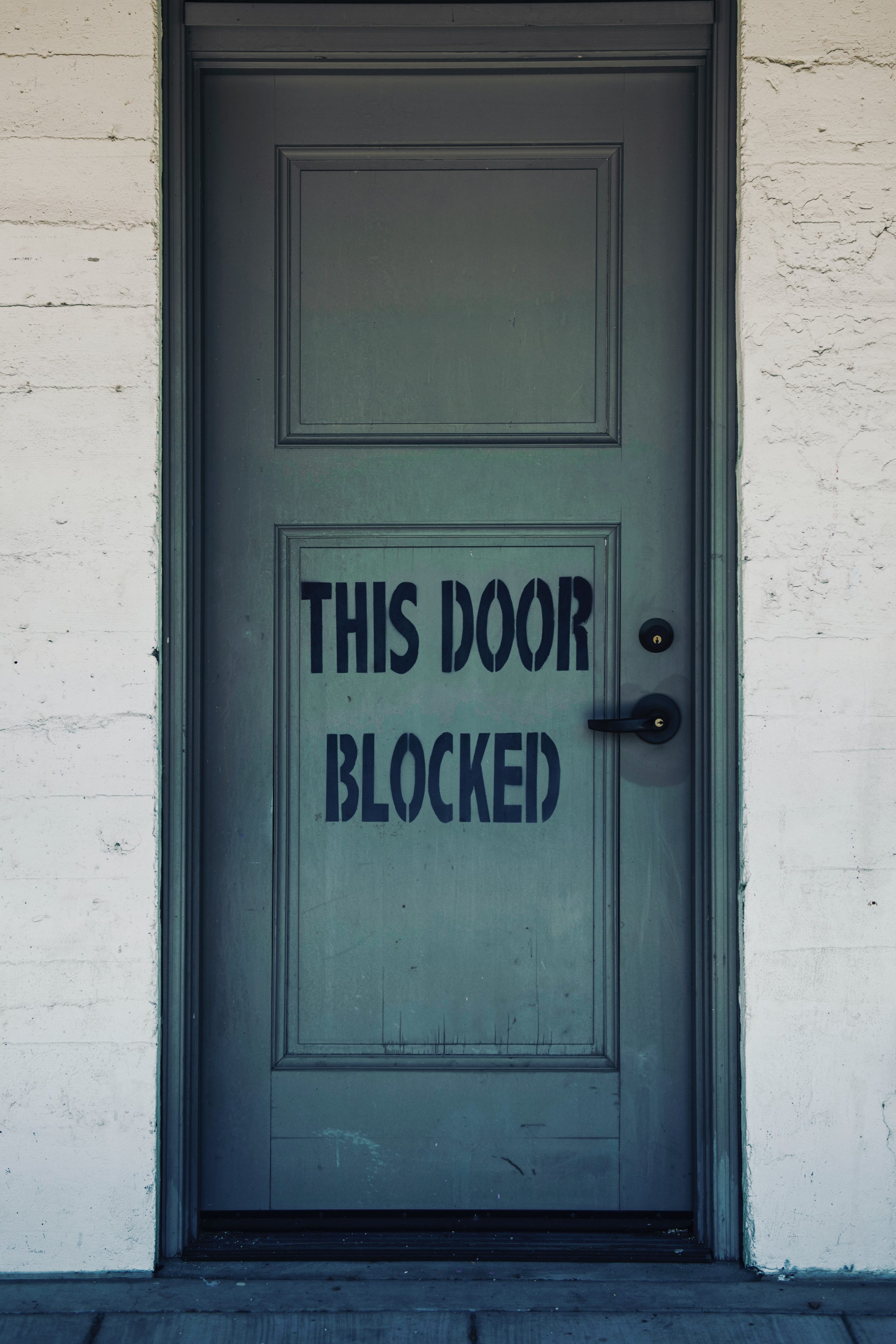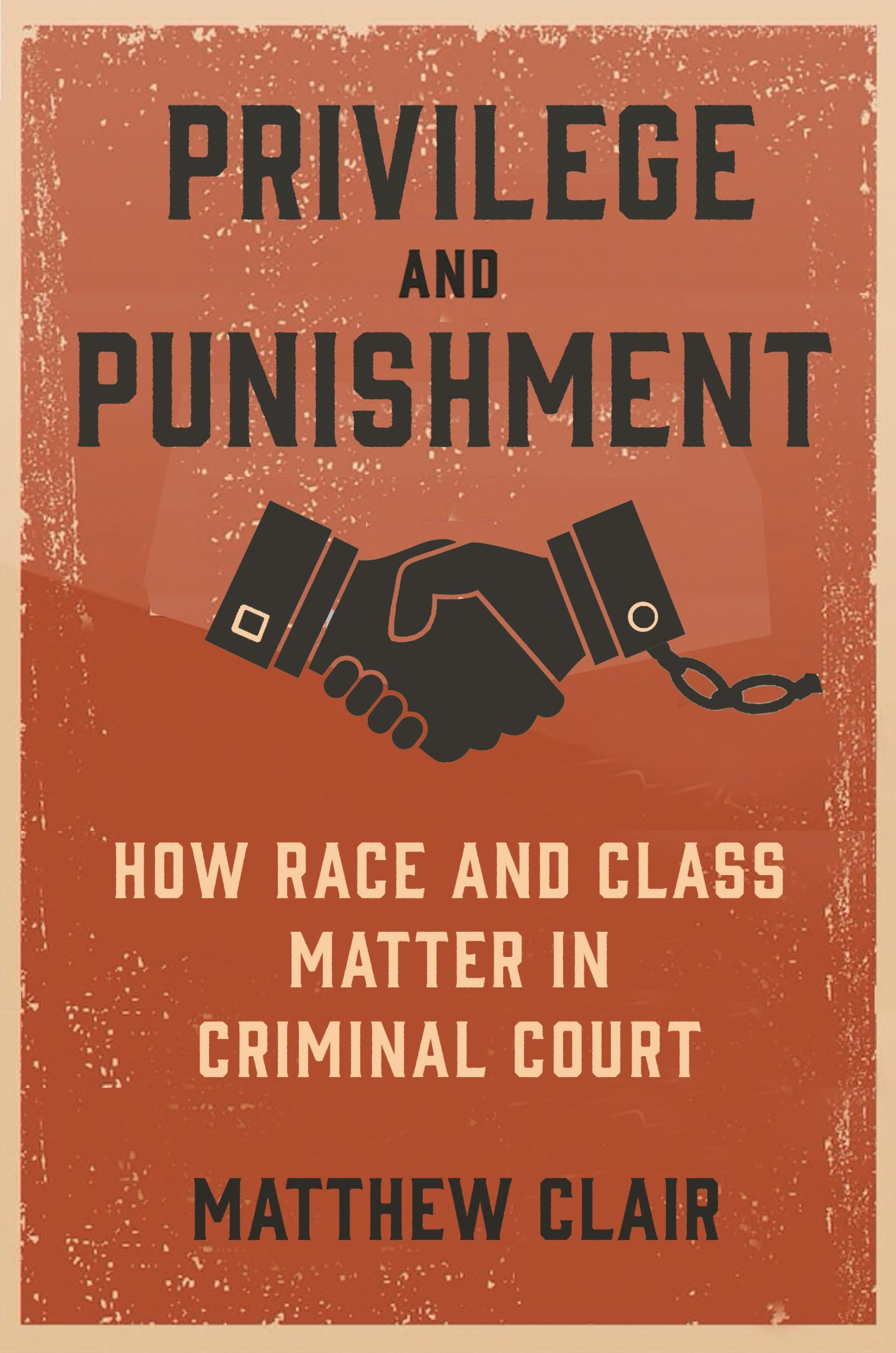Nearly all the lawyers I’ve spoken to have had more than one story to tell about “uncooperative” and “difficult” clients — defendants who withdrew from them. In in-depth interviews and in casual conversations, I asked lawyers about the kinds of defendants they prefer and the kinds that frustrate them. I asked them about the different kinds of relationships they find themselves in and the kinds that they strive to cultivate with their clients. And I asked how they react to these different kinds of relationships. Nearly every lawyer I spoke with was aware of the need to gain the trust of their clients. Some recognized defendants’ distrust of the legal system and defendants’ frustrations of being charged with a crime.
At the same time, defense attorneys admitted that they were not always able to gain the trust of their clients: many of their most disadvantaged clients did not seem to engage with them or defer to their expertise. Worse, they felt that some of their clients were outwardly hostile. One public defender told me, “Clients are always looking for a reason as to why they shouldn’t trust you.” Another public defender said, “Clients are quick to trash lawyers.”
When defendants are unable or unwilling to communicate because of their resignation, defense lawyers may not fully invest their time in preparing for their cases. For instance, an attorney I interviewed named Sybil described how, over time, she has come to be able to identify those clients who just might not show up for court. The reasons are numerous, but three scenarios, in Sybil’s experience, are the most common: they are managing homelessness, have a drug addiction, or simply do not have a way to stay in contact because they are too poor to have a phone. Sybil waits to prepare motions for these defendants only after they show up a second time to court at their pretrial hearings.
For lawyers like her, preparing motions after the pretrial hearing rather than before for certain clients could possibly save her time for other tasks and other clients. Of course, such a practice could contribute to clients feeling that their lawyers are not taking their cases seriously — a common complaint among disadvantaged defendants. When clients are so resigned that they do not meet with their lawyers or answer their phone calls between court dates, defense attorneys respond by making their own decisions about what legal outcome they believe to be in a client’s best interest. Such decision making can become routine: Lawyers prepare for the possibility of trial but expect to negotiate a reasonable and standard plea deal that they assume their clients would not mind taking.
Another attorney, Selena, like nearly all the other defense lawyers in this study, is adamant that she does not force defendants to take plea deals. This was confirmed in my observations. At the same time, defendants who are resigned tend to be lulled into plea deals that have been negotiated by their lawyers with little of their explicit input. Moreover, a lawyer’s strong suggestion that it is in a defendant’s best interest to take a plea can feel like coercion for defendants who do not want to.
There are myriad costs to resisting defense attorneys’ advice regarding pleas. Troy, a poor white defendant, recounted to me how he initially refused his attorney’s suggestion that he plead guilty to one year of probation for his first drug possession charge. He felt he should have been able to get a better deal given his clean record:
Like, he [my lawyer] was coming back to me like, “Yeah, just plead guilty and take a year probation, and do this right now.” No, I’m not doing it. You know what I mean? Because at this point, I didn’t have a record. And usually the first couple of times, they’re easy on you—like, they’ll work with you. So I said to him, “This is my first arrest. I’m not taking a year probation. For what?”
While waiting for his lawyer to negotiate a better deal, Troy was fortunate to be out on bail. But he had several pretrial conditions. One condition was that he had to complete a detox program. Such mandated pretrial conditions are, for many defendants, perceived to be a form of leniency, at least as compared to incarceration. But such conditions also serve the purpose of surveilling defendants and monitoring their behaviors, even when they have yet to be convicted of a crime. Several months later, after not showing up to court and being rearrested on default warrants, Troy learned that his attorney had finally negotiated a form of pretrial diversion known as a “continuance without a finding,” which required him to comply with terms of probation but would result in the case later being dismissed if he did so successfully. He took this deal. It was a marginally better outcome than immediately pleading guilty with terms of probation because it would not leave a conviction on his record (assuming he abided by his probation terms). Troy’s experience reveals the sentencing benefits of waiting out a plea for some defendants, as well as the legal and nonlegal costs of pretrial conditions and the risks of rearrest.
In small and large moments behind closed doors and in court, lawyers respond negatively to other kinds of resistance among their clients beyond the refusal to take a plea. Clients perceived to be resistant are described with even more annoyance and frustration than the resigned.
Some lawyers I interviewed readily acknowledged less investment in clients who frustrate them or question their authority, underscoring how relationships of withdrawal are marked by lawyers withdrawing from their clients as much as they are by clients withdrawing from lawyers. For instance, a bar advocate I spoke with over lunch told me that she loses patience with clients who try to dictate legal strategy. She recounted a time when one of her clients similarly pressured her to file motions that she believed to be inapplicable. She declined to do so. In response, her client attempted to file a motion without her knowledge while he was detained in jail. The client submitted the motion directly to the judge, without informing her or the prosecution. The bar advocate explained to me that the defendant’s motion constituted “ex-parte communication” — because a motion must be submitted to a judge in the presence of the ADA on the case or another representative from the DA’s office. She said, “It really pisses me off” when defendants seek to file motions on their own because it calls into question her “legal expertise and practice of the law.” She also noted that doing so reflects poorly in the eyes of the court: “When that happens to me, it’s a disservice to the client. Sure, they feel empowered, but they screw themselves over because they look stupid in court and are aggravating to the court.”
In public proceedings, defense attorneys sometimes let their frustrations with their clients become known to other officials. I observed such open frustration among a number of bar advocates. Public defenders, meanwhile, were often quite critical of bar advocates who “threw their clients under the bus” in open court. Whereas public defenders largely kept their annoyances with their clients to themselves or only shared them with colleagues back in the privacy of the defender’s office, some of the bar advocates I observed let slip their annoyances in front of judges, prosecutors, and a gallery full of other defendants and onlookers. The open frustrations of some bar advocates no doubt contribute to perceptions among disadvantaged defendants that all court-appointed lawyers cannot be trusted, given that defendants rarely differentiate between public defenders and bar advocates and that about three-fourths of indigent cases are handled by bar advocates.
For instance, one bar advocate, a white woman, shamed her client, a young Black man, for being late to a hearing that would ultimately result in the dismissal of his case. The lawyer appeared to shame her client as a way to express her frustration and also display to the judge that she could exert control over his behavior. Their conversation unfolded as such:
Judge: Where were you? You weren’t here at 9:15 this morning. Defendant: No, but I was parking, uh. Judge: No, you weren’t.
The lawyer turned toward her client but spoke loudly enough for everyone in the courtroom to hear:
Lawyer: You weren’t! I was calling you all morning!
Judge: Okay. I already yelled at him. Don’t you yell at him too!
Despite the lawyer’s shaming of her client in front of the judge, the judge chose to be lenient. Moreover, he called the lawyer out for attempting to shame her client. The judge ended up dismissing the case, allowing the defendant to work several hours of community service in lieu of payment for his attorney’s fee.
In another instance, I watched a white male bar advocate and his Black male client openly express their mutual frustrations during a pretrial hearing. The lawyer asked the judge for a motion to suppress hearing, which would determine whether video footage of his client’s arrest would be admissible as evidence at trial. The prosecutor argued that the video footage should be included because it showed the defendant resisting arrest. At this suggestion, the defendant suddenly shouted, “Man, I’m only one person. I can’t fight four officers!” His outburst appeared to be an attempt to articulate how his actions did not meet the legal definition of resisting arrest. At this point, the judge was visibly annoyed. Yet to hear full arguments from the ADA, she said, “Please speak through your attorney, sir.” His attorney tried to quiet him and insist that now was not the time to make his case, but the client rebuffed his attorney. He turned to him and yelled, “Man, but I didn’t resist arrest!” His lawyer yelled back: “Stop talking! Why would you do this? What are you doing? Stop talking!” The judge interrupted their squabble and said, “Okay, okay. Second call.” “Thank you, Your Honor,” the lawyer muttered, as he and his client brushed through the gallery and out into the hallway. Through the doors, I could hear the muffle of the lawyer’s shrill voice as he reprimanded his client.
Oftentimes, as in the above scene, defense attorneys seek to control their clients in court as a way to protect them from accidentally incriminating themselves or damaging their image in the eyes of the court. In the lawyer’s eyes, their efforts at control are therefore well intentioned. Lawyers told me, again and again, that even though clients technically have certain due process rights, they rarely advise them to speak out or draw attention to themselves in court proceedings. They realize that a defendant’s cultivated legal expertise carries little currency.
Judges are not always indifferent; some shame defendants for their poverty or for behaviors they believe to be associated with poverty and disadvantage — a reality that defense attorneys report they must navigate and predict. In this sense, a lawyer’s efforts at controlling their client in court can be understood as a performance for judges known to be harsh or belittling. In moments when judges shame defendants, defense attorneys feel they must subordinate their clients’ understandable hurt to their overarching professional goal of mitigating their clients’ legal outcomes.
Some defendants are aware of the formal legal costs of resistance; yet, they may nevertheless be willing to incur them because they care about more than their legal outcomes. This is particularly the case when defendants feel deeply that the system is morally wrong or illegitimate. Such a feeling is most common among those who are marginalized and feel they have been treated unfairly by police. Joe, a white working-class man with long eyelashes, told me about a codefendant of his named Bob who refused to listen to his lawyer’s advice. Joe described how they were both arrested for distributing heroin in Cambridge. They were stopped by the police after Joe handed Bob several bags of heroin through his car window. Joe was stopped while in his car, and Bob was stopped while running up the sidewalk. But before the police apprehended Bob, he threw the heroin to the ground and thus was caught without the drug on his person. Joe recounted that the police report, however, said that Bob was caught with heroin in his possession. “They lied and lied and lied and lied,” Joe told me.
Some defendants are aware of the formal legal costs of resistance; yet, they may nevertheless be willing to incur them because they care about more than their legal outcomes.
Joe chose to hire a lawyer he trusted and delegated authority to the lawyer; Bob, according to Joe’s telling, resisted his lawyer’s expertise. Both of their lawyers suggested that they work to negotiate a plea deal and strive to get the prosecution to drop some of their charges. Joe was hesitant but ultimately decided to work with his lawyer toward a relatively light plea deal because his lawyer “had friends in the court system. Like, he had an amazing record. He was a good fucking lawyer.” Ultimately, the strategy worked. Joe’s lawyer told him that the ADA offered to “drop five of the six charges, and he’s going to leave you on the distribution, and he’s going to give you two years’ probation. Take it or leave it.” Joe pleaded to two years of probation time. Meanwhile, Bob’s lawyer extracted an even better plea deal. According to Joe, Bob was offered a year of probation. But Bob refused to take the deal. He wanted to go to trial just so he could watch his lawyer cross-examine the police and see if they would lie to the court. Joe said:
[Bob] is crazy. I mean they were going to offer him a year probation, and he’s like, “No, fuck that.” He’s like, “I’d rather spend a year in jail just to see the cops on the stand and lie to my face.” And he did. He’s getting out in 12 weeks. He spent two years in jail just to see the fucking cops lie. He’s crazy.
Bob’s refusal to take a plea and defer to his lawyer’s expertise ultimately resulted in a guilty conviction and a sentence of two years in jail. Yet, according to his friend, it was important for Bob to maintain his innocence and resist the police’s authority throughout the process. Similarly, Tom told me about a client of his who also wanted to maintain his dignity by having Tom cross-examine the police on the stand to expose his experiences of police abuse. This particular client was accused of assaulting a police officer, but the client alleged during trial that the officer was the one who assaulted him. About such clients, Tom said, “For some clients, all they want to do is expose what the cop did wrong. And you’ll sit down after cross-examining, and they’ll say, ‘That was great.’ That’s the mode of victory. That’s all they wanted.”
Excerpted from Privilege and Punishment: How Race and Class Matter in Criminal Court by Matthew Clair. Copyright © 2020 by
Princeton University Press. Reprinted by permission.
Image: Unsplash


